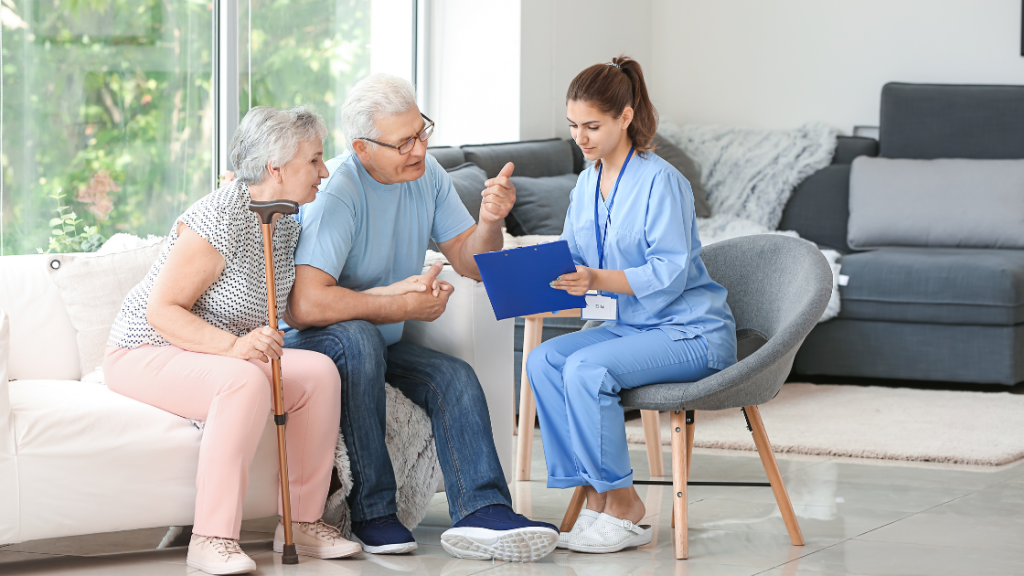Lewy Body Dementia is the second most common progressive dementia after Alzheimer’s. In simplest terms, it is caused by the deposit of abnormal proteins called Lewy bodies in the brain. Along with the symptoms of cognitive decline such as inability to concentrate, disorganized ideas, loss of thinking abilities, visual hallucinations, etc., it also affects the mobility of the individual causing muscle rigidity, loss of balance and muscle coordination, etc. Certain symptoms have a resemblance to Parkinson’s disease such as slowed movement, difficulty in walking, loss of balance, tremors, postural changes, muscle stiffness, etc. People with Lewy Body Dementia also experience varied emotions, confusion, agitation, fear, and depression. The symptoms may not be noticeable at first but you will start encountering them as the disease progresses over time. A person in the early stages of Lewy Body Dementia may have a clear memory one day but may get confused and forgetful on the other.
Microscopic image of a Lewy body (arrowhead) in a neuron of the substantia nigra. (Image source: Wikipedia)
Symptoms of dementia with Lewy bodies
-
Loss of balance and falling frequently
-
Loss of problem-solving abilities and poor judgment
-
Staring objects or into space for minutes
-
Lack of concentration
-
Unclear speech
-
Difficulties in walking, moving, and sleeping
-
Physical problems like incontinence and constipation
-
Fainting and dizziness
Few measures you can consider while caring for your loved one having Lewy Body Dementia
-
Awareness and preparation: First and foremost, seek all the information about the disease from the doctor, health professional, and the internet. Learn about where the disease is headed. Knowing what’s coming can significantly help you plan and prepare for future care.
-
Compliance with treatment: Lewy Body Dementia has no cure, but proper medication can help in controlling and lessening the symptoms. People with dementia often forget to remember to take their medication. Figure out ways to remind them when to take their medicine and comply with the doctor’s instructions.
-
Physical exercise: Regular physical activity, exercise, or physical therapy can improve normal functioning and behavior, reduce overall stress and the chances of falling. Take them for regular walks or engage them in a sports game.
-
Modify their environment: Noise and messy environments can increase their chances of having hallucinations. Remove Clutter and try reducing any distractions in their room or other places they spend most of their time.
-
Alternative therapies: Music and art therapy can help reduce anxiety, improve mood and give them a sense of refreshment. Massage therapy can loosen their stiff muscles, improve blood circulation and provide relaxation. If feasible, pet therapy can also be used to boost their mood.
-
Look out for wandering behaviors: There’s a high chance that people with Lewy Body Dementia will wander. Put plans in place to prevent it, such as alarming and locking doors, having your loved one wear a wristwatch with a GPS tracker, and providing supervision if necessary.
Even though these measures promise to help in managing a person’s symptoms, these may not be enough to counter the challenging symptoms posed by the disease. Seek additional help when their behavior gets really aggressive, dangerous, or uncontrollable. Immediately consult the doctor who is treating your loved one’s dementia. As a caregiver, you will experience a wide range of emotions throughout caring for the person with Lewy Body Dementia. This caring will sometimes feel loving and rewarding, while at other times will make you feel impatient, angry, or tired. Watch out for the warning signs of your own physical and mental health.
Visit our LinkedIn page for the latest updates on our company, including exciting developments and new offerings. Stay informed and connected with us as we continue to grow and provide valuable learning opportunities for professionals in caregiving industries.





